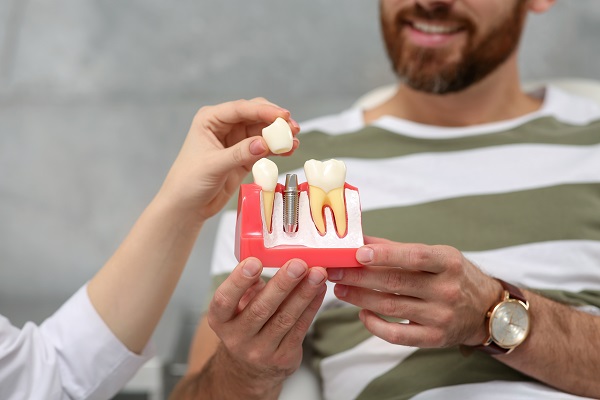Dental Implant Failure Causes and Prevention

Dental implants are one of the most effective and innovative methods of tooth replacement. Dental implants can experience their own problems such as failure, but it is quite unlikely. Thankfully, there are ways to prevent implant failure. Although dental implants rarely fail, it is possible. Being aware of how dental implants fail may help one to understand how prevention can take place. If you are considering dental implants or if you already have them, then you may find this information to be useful.
Causes and prevention of dental implant failure
There are a few reasons why dental implants may fail. However, a dentist can recommend ways to prevent failure as well. By recognizing the causes, patients will be able to avoid dental implant failure. Then, patients will enjoy oral wellness.
Jawbone structure
Some people will experience dental implant failure due to a lack of jawbone structure. When a patient starts losing teeth or has them extracted, their jawbone gradually deteriorates. Then, patients need to have implants placed. However, the regeneration of the bone structure does not always begin immediately. Sometimes, the implants can take time to fuse in, which means the bone may also deteriorate at the same time.
Infection
Dental implants require invasive surgery. The gums are very prone to bacteria because the healing process can take a long time. If the gums do end up taking too long to heal from the surgery, an infection is likely to occur from lack of oral hygiene or food particles buildup. An infection where the dental implants were placed may cause the implants to fail. The bone may reject the implants due to the infection then.
Good oral hygiene
One way to avoid dental implant failure is to ensure good oral hygiene. Brushing and rinsing during the dental implant process are both important because it will help avoid infections. Thus, making it more unlikely that failure will occur. While the implant site may be sensitive immediately after the surgery, rinsing is still important. And, after some initial healing, brushing must take place too as it can prevent bacteria growth and buildup.
Regular checkup appointments
Another way for patients to achieve dental implant failure prevention is through regular checkup appointments with their dentist. During the regular appointments, the dental professional can ensure that a patient’s implants are not harming the mouth. If the implants start to get infected or cause immense pain to the patient, the dentist can help by providing the necessary treatment.
Contact your dentist today
Dental implant failure has both causes and ways to prevent it. Speak with a dentist about dental implants and the potential failure that comes with them. If you have questions, then reach out to your dentist’s office today. Your dentist can walk you through dental implants and the whole process that is involved. Schedule a consultation today and let your dentist help you enjoy a great smile once again.
Request an appointment here: https://smilestudiochicago.com or call West Loop Smile Studio at (312) 248-7416 for an appointment in our Chicago office.
Check out what others are saying about our dental services on Yelp: Dental Implants in Chicago, IL.
Related Posts
Nearly 3 million people in the United States have a dental implants, and the number is projected to grow over the coming years. Due to their appearance, reliability, and functionality, more people are turning to implants over dentures and bridges. If you are thinking of getting dental implants, this article provides a guide on the…
There are plenty of options available when it comes to tooth replacement, but one that stands out above the rest is dental implants. These have become the best long-term solution to tooth replacement, and the technology has advanced to an almost unrecognizable degree from what it was even just ten years ago. If you're considering…
If you’ve lost a tooth, odds are you’ve at least looked into dental implants. They are one of the most popular alternatives to dentures or bridges. They are sturdier, more pleasant to look at, more pleasant to deal with, and have a tremendous success rate.However, there is a bit of a time commitment. You’ll need…
tooth fillings offer a simple approach with little to no pain. This dental restoration treatment has long been the standard for restoring and rebuilding teeth damaged by cavities, injury, or minor imperfections such as chips or cracks. When considering different dental restoration options, it is a good idea to get familiar with how each procedure…
